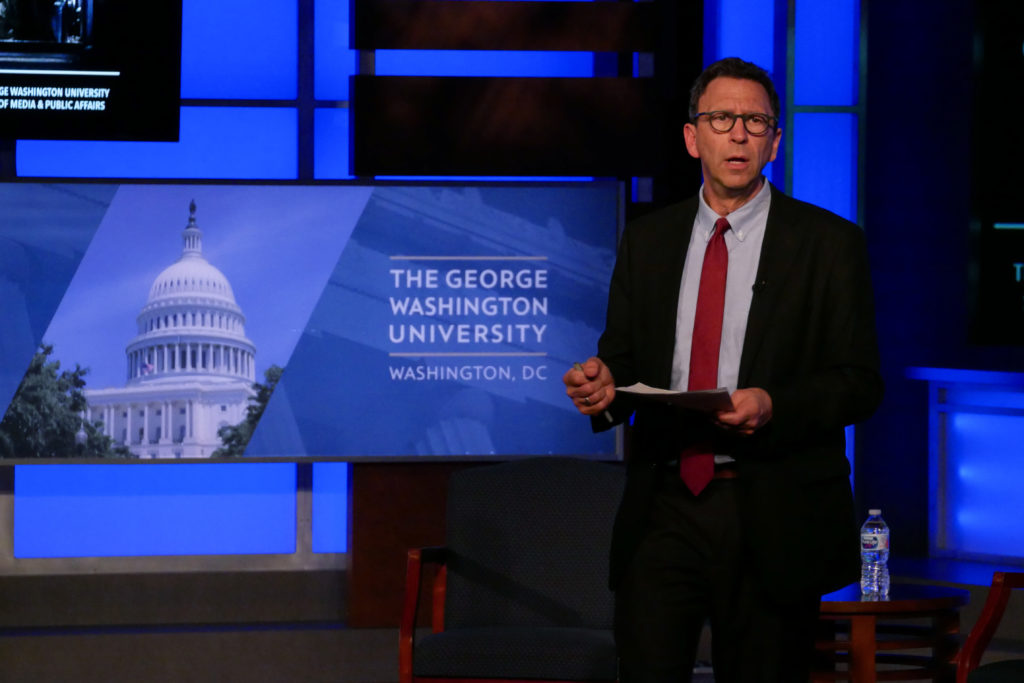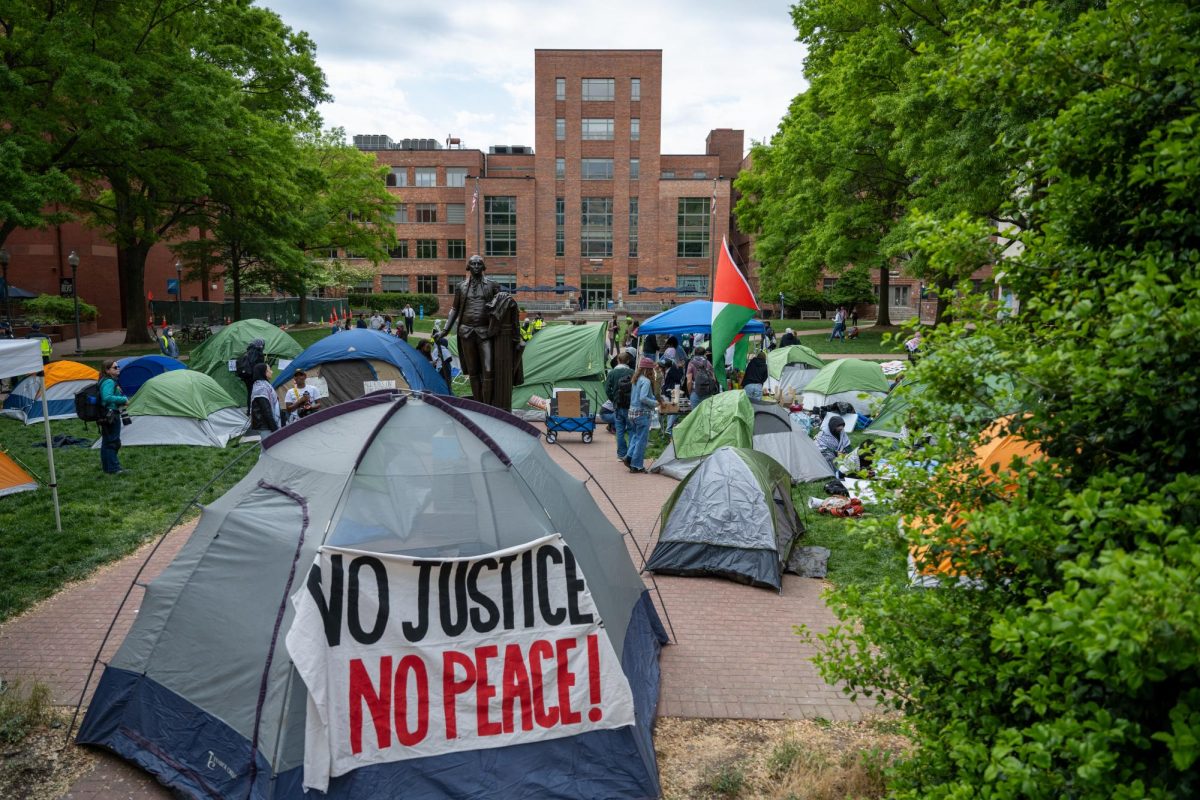Updated: April 29, 2019 at 9:56 p.m.
Faculty turnover in the School of Media and Public Affairs this academic year led officials to stop offering certain courses, but officials said new and returning faculty will fill the gaps.
Six SMPA faculty will return to the school, and officials will hire up to four more professors next fall to fill seven vacancies, SMPA officials said. The returning faculty and new hires will mitigate issues caused by the departures, like the increased student-faculty adviser ratio and reduced course offerings, administrators said.
SMPA Associate Director David Karpf said the departures left the school unable to offer some journalism capstone courses and classes like Broadcast News Reporting this semester and Big City Reporting this fall. He added that officials are finding “alternative” courses to help students affected by the lack of course offerings to fulfill their major requirements.
“We also recognize that some students found it more difficult to get into the courses they needed this spring semester with a confluence of sabbaticals, parental leave and retirements,” Karpf said in an email.
He said SMPA students whose advisers are departing this semester needed to be reassigned to faculty remaining at the school, increasing the number of advisees per professor. Karpf said that as a result, students could have more trouble scheduling advising appointments and wait longer to receive answers to questions from their advisers.
“We’re exploring options to make sure faculty members have a reasonable number of student advisees and the responsibility of advising students is shared equally,” he said.
SMPA Director Frank Sesno said the number of faculty departures this year was an “aberration” where multiple faculty members retired or accepted positions at other schools. He added that the remaining SMPA professors have stepped up to teach additional classes that the school otherwise would not have been able to offer.
“I think everybody really pitched in and picked up what they needed to do,” Sesno said.
Sesno said six professors left SMPA this academic year or will leave SMPA before the fall semester. Professors Robert Entman and Roxanne Russell retired this year, professors Debbie Cenziper and Nikki Usher accepted jobs elsewhere and two professors went on parental leave but will return this fall, he said.
Jeffrey Blount, SMPA’s journalist in residence, said his yearlong contract with the school expires at the end of this academic year.
Sesno said the school will be in “better shape” next academic year because several “core” SMPA faculty, including professors Patricia Phalen, Kerric Harvey, Catie Bailard and Matthew Hindman, will return from sabbatical; professor Kimberly Gross will return to teaching after serving as an interim associate dean in the Columbian College of Arts and Sciences; and SMPA officials will hire two new faculty members to teach courses in political communication and broadcast journalism starting this fall.
“Our utmost concern, our top priority with regards to the student experience at SMPA, is to be first class, world class, that’s why we’re taking this as seriously as we have,” Sesno said. “That’s why we’re able to do and that’s why we’re gratified that the situation will be vastly improved next year.”
Karpf, the associate director, said that in addition to the two faculty hires in progress, SMPA officials are seeking permission from CCAS administrators to hire two additional full-time professors to teach journalism courses.
He added that because hiring new tenure-track faculty members is a “lengthy” process, officials may hire a visiting professor to teach courses and advise students in the interim.
“We’re exploring options to make sure faculty members have a reasonable number of student advisees and the responsibility of advising students is shared equally,” Karpf said.
Higher education experts said the departures could affect students’ ability to form bonds with faculty mentors, who in turn help students when they are applying to graduate school and searching for jobs.
Robert Kelchen, an assistant professor of higher education at Seton Hall University, said high faculty turnover may exacerbate uncertainty in students’ post-graduation plans because they may not have mentors who can guide them through the application process for graduate school or a job search.
“The biggest concern with turnover is building relationships with students,” he said. “If you’re majoring in a subject and faculty are leaving, it can be more difficult to build relationships that help students get into graduate school or get jobs.”
Sean Robinson, an associate professor of higher education at Morgan State University, said universities should make an effort to retain professors for longer periods of time to avoid hindering students’ efforts to develop relationships with professors.
“A mentor really gets to know a student, or what I think of as a protege, and builds that relationship over time,” he said.
Robinson said the fact that SMPA will have to onboard a few faculty hires at once may reduce the quality of academic instruction because current faculty members will need to devote more time to guide new professors, which can take away time spent helping students.
“Someone learning all of that for the first time, it creates a certain amount of stress on a department – if you have multiple people who all need that at the same time,” he said.
Joshua Boyd, an associate professor of communication at Purdue University, said students may have to alter their academic plans as a result of courses canceled because of faculty departures.
“If somebody leaves, then it makes it difficult for students because it might be difficult to find that class being taught,” he said.
Lia DeGroot contributed reporting.
This post was updated to reflect the following clarification:
The Hatchet reported that two professors left or will leave SMPA on parental leave before the start of the next academic year. This post has been updated to reflect the fact that the two professors left during this academic year and will return to SMPA in the fall.





